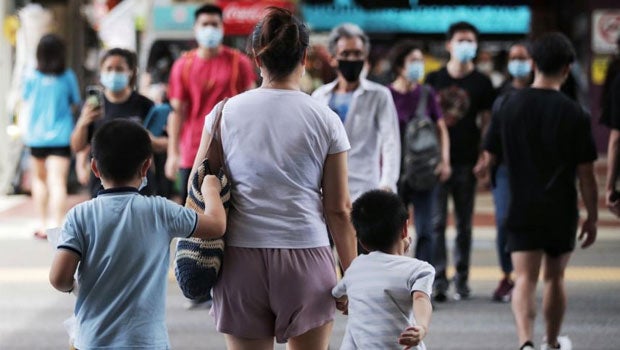
SINGAPORE - A new research institute has been set up to improve maternal and child health here.
The institute will conduct research in key areas such as patient care, innovation and digital strategies to address pressing issues affecting women and children.
It aims to advance reproductive, metabolic and mental health, cognitive development, as well as cures for cancer and critical diseases.
The SingHealth Duke-NUS Maternal and Child Health Research Institute (MCHRI), which will leverage the expertise of those at KK Women’s and Children’s Hospital (KKH), will also nurture a pipeline of researchers and establish key partnerships and collaborations.
At the institute's launch at KKH on Friday (Oct 8), Minister for Social and Family Development and Second Minister for Health Masagos Zulkifli noted the importance of translating local research knowledge into impactful interventions.
He said: "MCHRI can help to strengthen and build an integrated ecosystem to provide wraparound support for the mother-child dyad.
"MCHRI is well placed to forge a collaborative community - comprising researchers, academics, practitioners and service providers - to translate research into real-world clinical practice for the mother and child."
The new institute comes at the 10-year mark of SingHealth and Duke-NUS' academic clinical programmes for paediatrics as well as obstetrics and gynaecology.
Both are the largest specialist training programmes in their domains locally.
To mark this milestone, the MCHRI is partnering Menarini Biomarkers Singapore (MBS), the diagnostics arm of Italy's Menarini Group, to establish an Asia hub to advance research and development for healthcare biotechnology and diagnostics in the region.
This is biopharmaceutical firm Menarini's first such hub outside of Europe.
On Friday, MCHRI signed a memorandum of understanding with MBS to create a regional and international medical hub in Singapore for non-invasive diagnostics in prenatal and targeted therapies.
The three-year collaboration will pioneer clinical trials using cell-based, non-invasive prenatal diagnosis. This enhanced diagnosis process using Menarini's proprietary technology is non-invasive, and carries minimal risks and discomfort to pregnant women.
With a needle prick and tiny amounts of blood from a woman, clinical teams can identify, isolate and analyse single cells with high precision.
Using predictive biomarkers, doctors can detect chromosome abnormalities in foetal cells circulating in the woman's blood.
This will help uncover genetic disorders in high-risk pregnancies and enable would-be parents and healthcare teams to make better decisions about the care for the child even before he or she is born.
Associate Professor Ng Kee Chong, director of the new institute and chairman of KKH's medical board, said that the institute will help to maximise human potential as a nation and build a more resilient community.
He said: "As we look at women and children's health starting from the womb, and design the continuum of care from pregnancy to childbirth, infancy to childhood, and adolescence to adulthood, we are laying the foundations for transformation of our nation's health, for today and generations to come."













 Get it on Google Play
Get it on Google Play